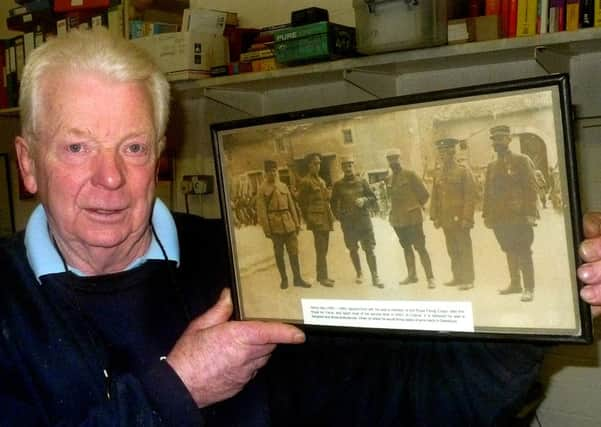Letter detailed life of WWI motor ambulance driver


These were the words written by Lieutenant Henry Day in a letter sent home to his brother in Dewsbury in 1915.
Its contents, reproduced in the Reporter on March 13 that year, detailed his experiences driving a motor ambulance with the French Red Cross Section in Commercy, France.
Advertisement
Hide AdAdvertisement
Hide AdThe letter was sent to Charles Day, of Messrs Henry Day and Sons, Wellington Mills – a family firm still run by his grandson, Charles Day. He was given a copy of the article by a friend carrying out research into another well-known local family.
Charles said: “I was absolutely floored at what Henry had to go through and the people he was bringing back from the Front. The pain that they must have had been in in these very primitive vehicles and hitting those potholes with your leg half blown off.”
A picture of Lt Day and other soldiers taken during World War I still hangs in the office of Henry Day and Sons Limited at Savile Bridge Mills today.
But Lt Day’s own son knew very little of his father’s experiences until the article resurfaced. Charles said: “When I sent the letter to Henry’s son George, who now lives in France, he cried because he really didn’t know what his father did during the war, besides driving an ambulance.
Advertisement
Hide AdAdvertisement
Hide Ad“He said when his father came home, on leave, he used to bring a cask of red wine, which he would have in his cellar and put it into bottles for family and friends.”
Back in Dewsbury, the family’s mill was running 24 hours a day to help with the war effort.
“Because there was a war on they wanted uniforms,” Charles said. “We made the shoddy for the uniforms for the mills that made them. I can’t understand why Henry went to France and left the mill to be run by his brother. We’ll never know.”
Lt Day’s letter details his experiences during three days in February 1915, one of which is in full below.
See next week’s Reporter for more.